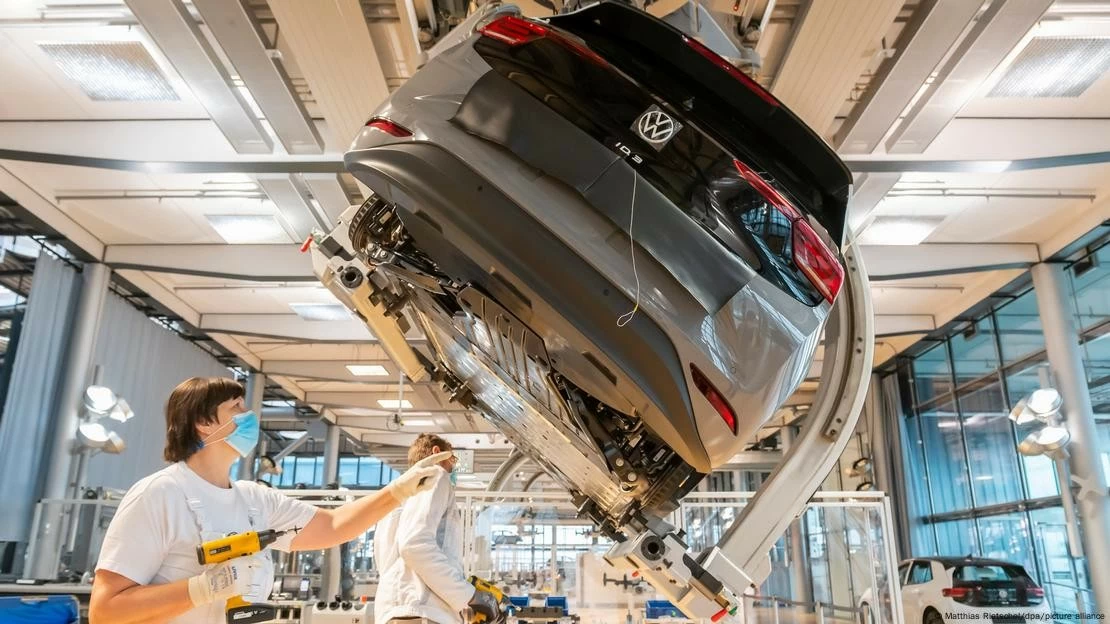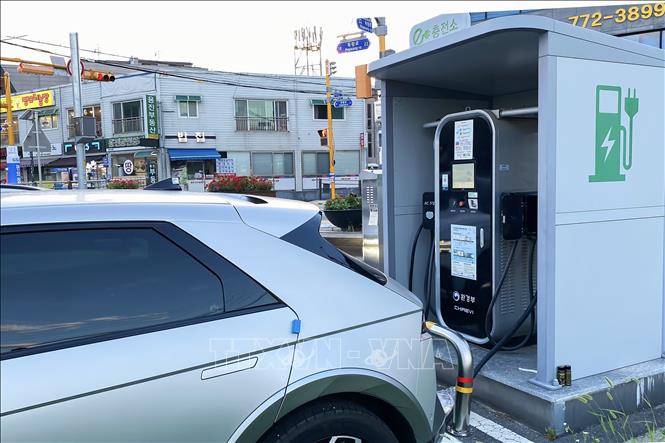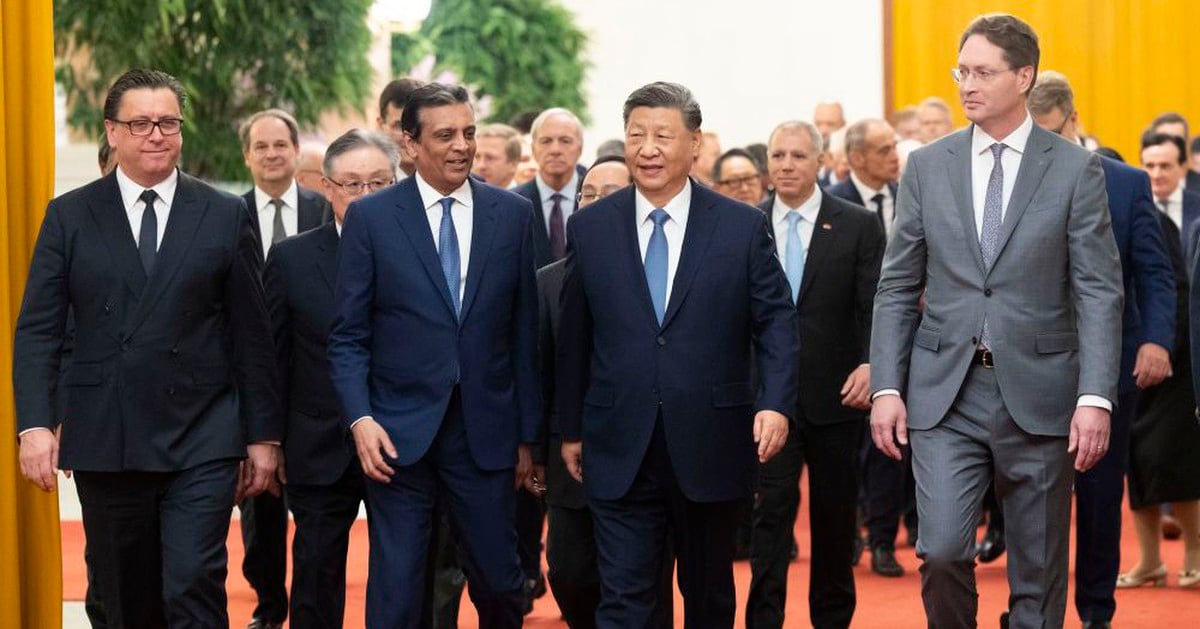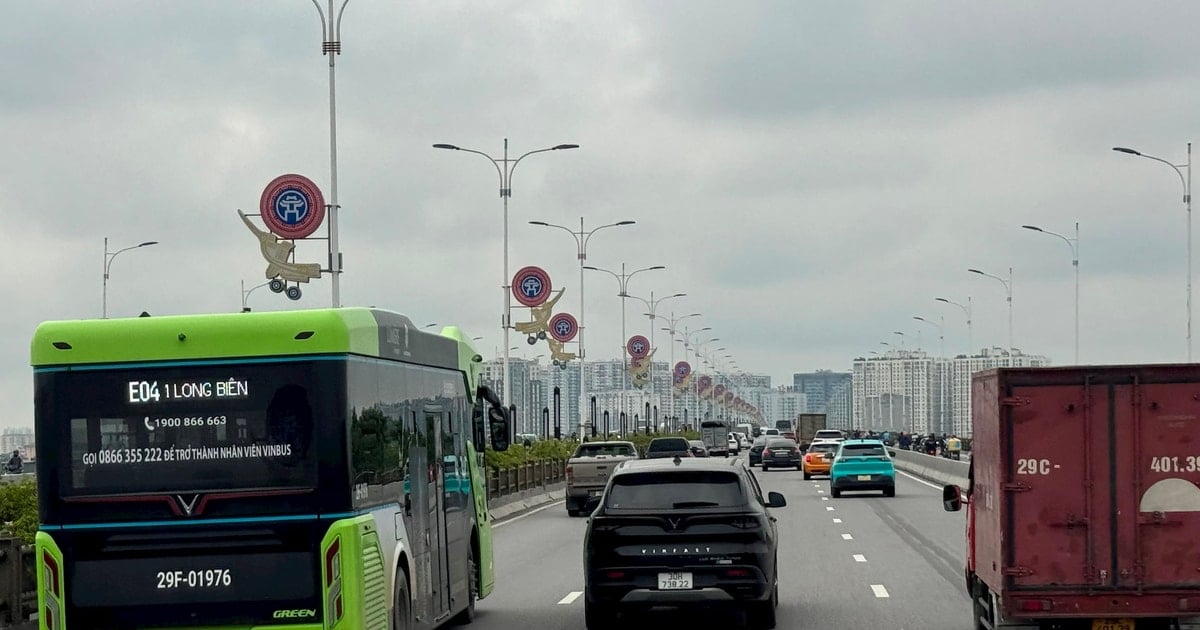News that German carmaker Audi is considering closing its factory in Brussels, Belgium, has alarmed observers. This could signal trouble for the electric car industry in Europe, which is already facing low demand and strong competition from Chinese electric vehicles.
 |
| Europe is racing to produce more electric vehicles as part of a green transition. (Source: DPA) |
Audi is a subsidiary of Volkswagen, and earlier this month the company made a shocking announcement that it was considering closing its German manufacturing facilities — an unprecedented move.
With 3,000 jobs at stake, workers at the Audi plant in Brussels have launched a long-running strike. They have planned a major demonstration in the capital on September 16 (local time).
Workers elsewhere will also strike in solidarity with workers in Brussels.
Europe is racing to produce more electric vehicles as part of a green transition, as the European Union's (EU) deadline to phase out sales of internal combustion engine cars by 2035 approaches.
But electric vehicle sales in this market have not been very bright. According to the EU, the number of new electric vehicle registrations in this bloc in July 2024 was down 6% compared to the same period last year.
This is partly due to the expiration of some subsidies, but weak demand has raised concerns about the sector.
The possibility of Audi closing its Brussels plant is the “first impact” of the challenges facing European carmakers, said Felipe Munoz, an analyst at automotive data firm Jato Dynamics.
He said cheap Chinese electric cars have saturated the market. At the same time, consumers are still unfamiliar with electric cars, which have higher upfront costs and tend to depreciate faster.
Amid such a backdrop, plans to impose import duties of up to 36% on electric vehicles imported from China are being discussed in the EU.
In July, the EU decided to impose additional tariffs after an investigation concluded that carmakers in China benefited unfairly from state subsidies.
But the move has been met with opposition from several countries, including Spain and Germany, which fear the tariffs will damage trade relations with China.
“These taxes can help European car companies to some extent,” said Conor McCaffrey, an analyst at Bruegel consultancy. “But they alone are not enough – the productivity and competitiveness of the European electric vehicle industry also needs to be significantly enhanced.”
Source: https://baoquocte.vn/xe-dien-tai-chau-au-lao-dao-loi-co-phai-do-trung-quoc-286596.html


































![[Photo] "Beauties" participate in the parade rehearsal at Bien Hoa airport](https://vstatic.vietnam.vn/vietnam/resource/IMAGE/2025/4/11/155502af3384431e918de0e2e585d13a)






























































Comment (0)